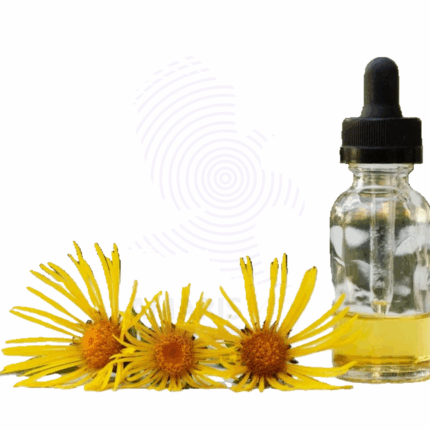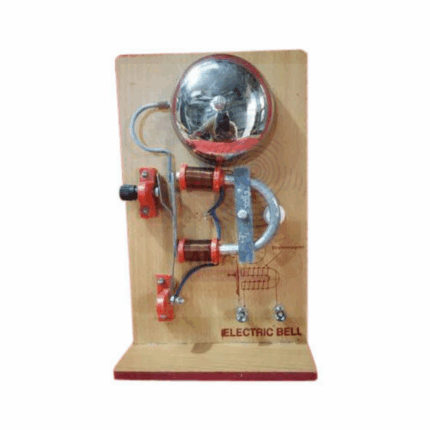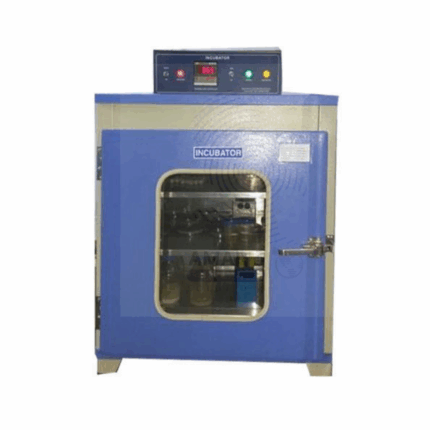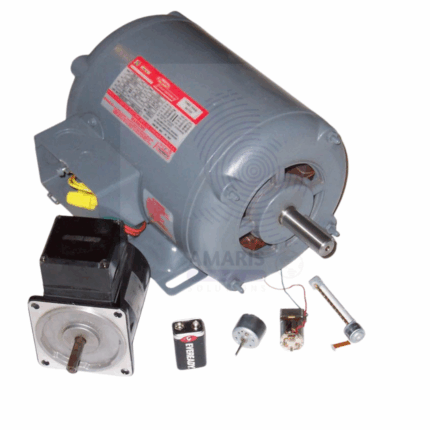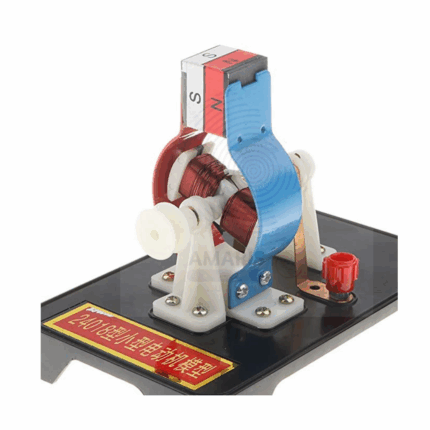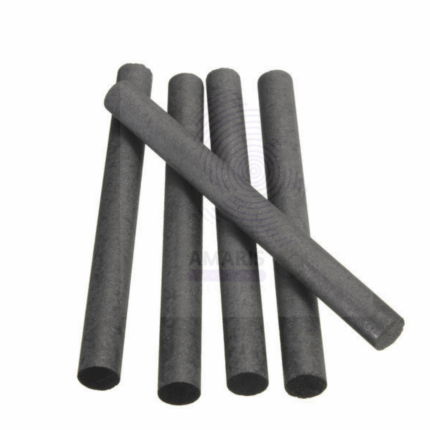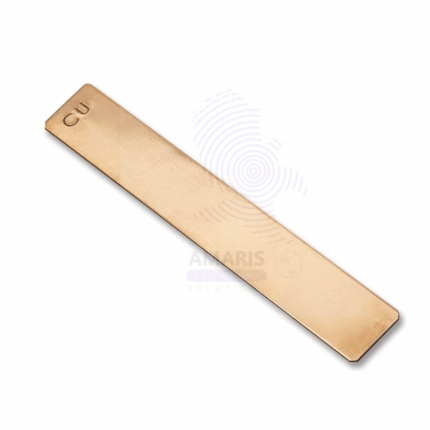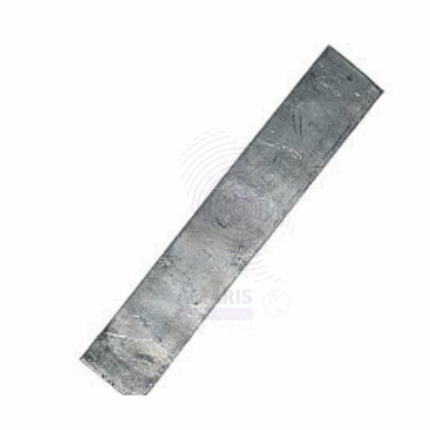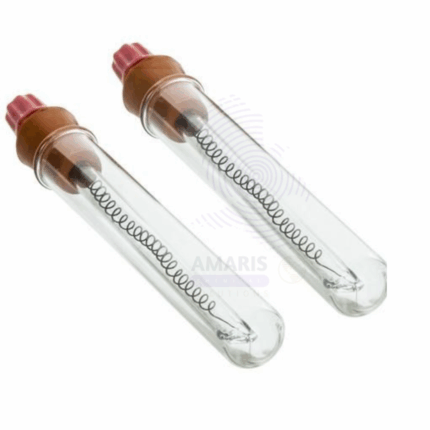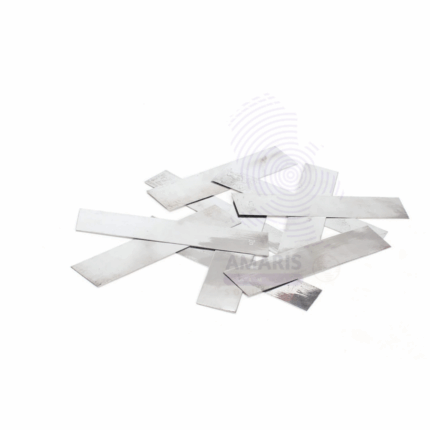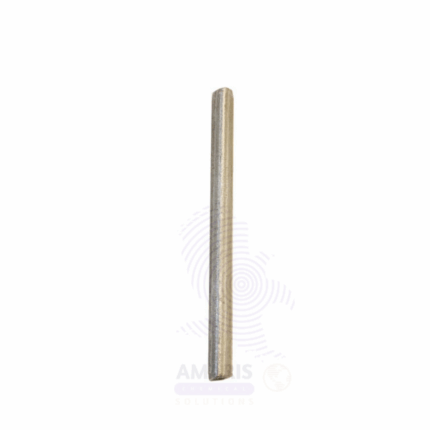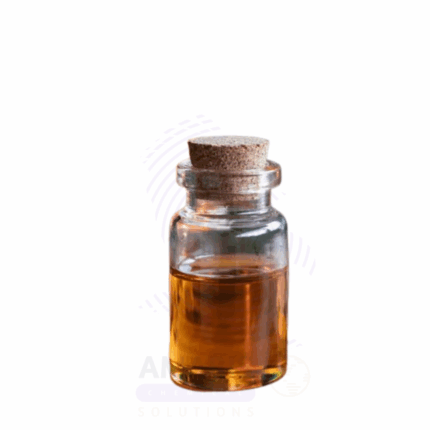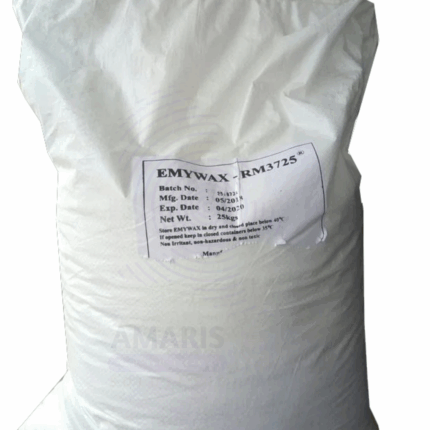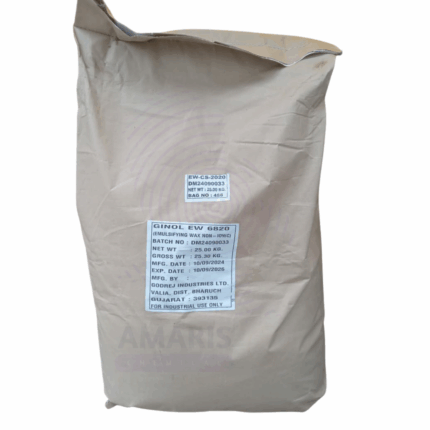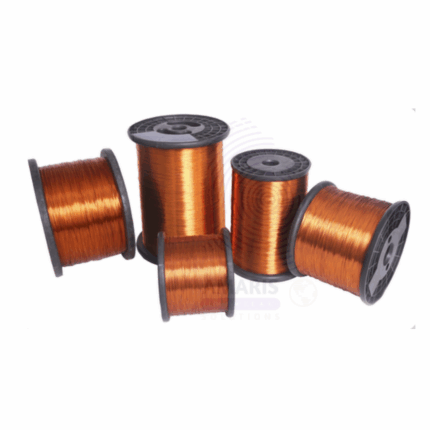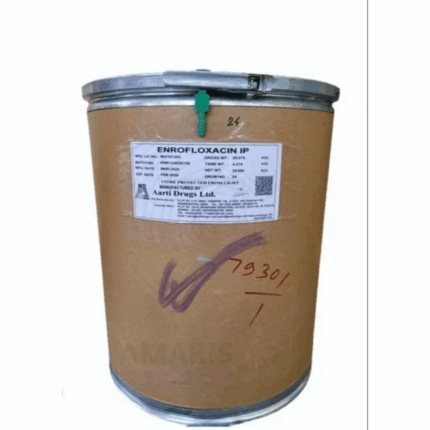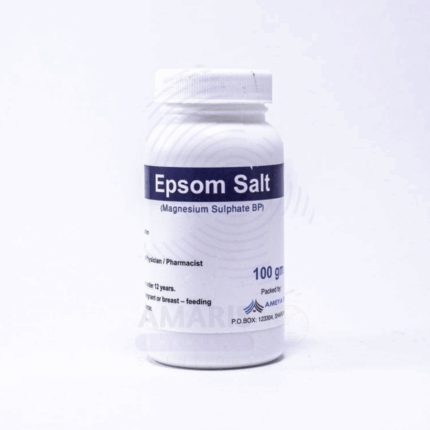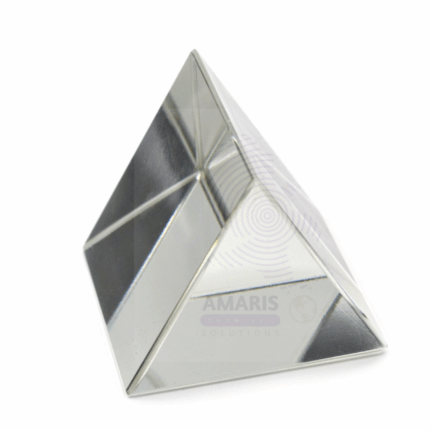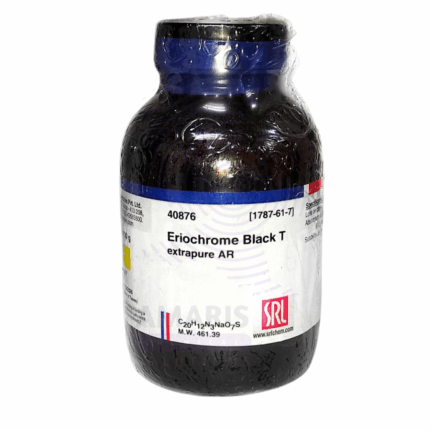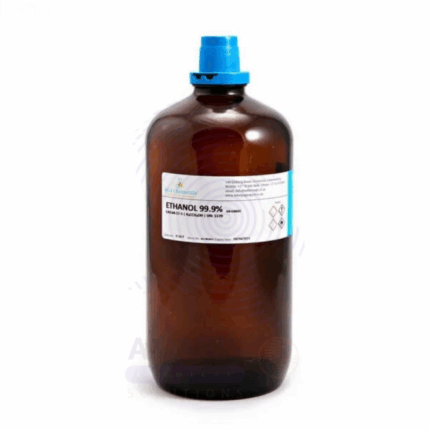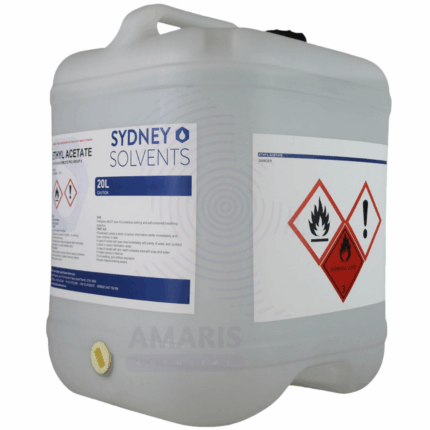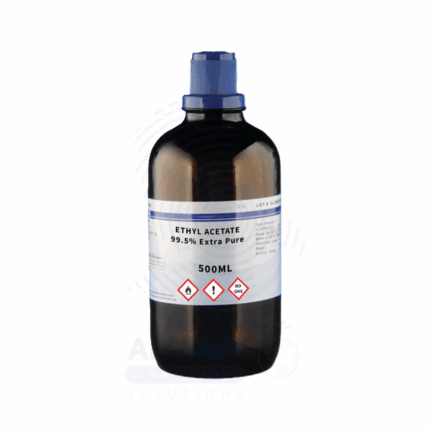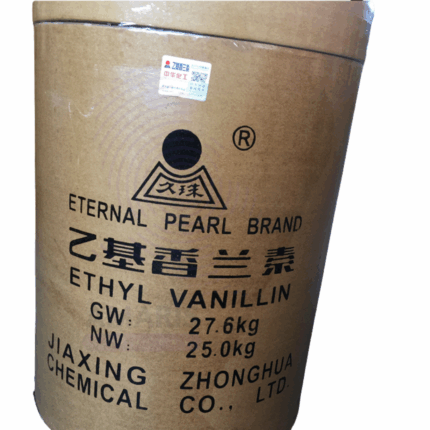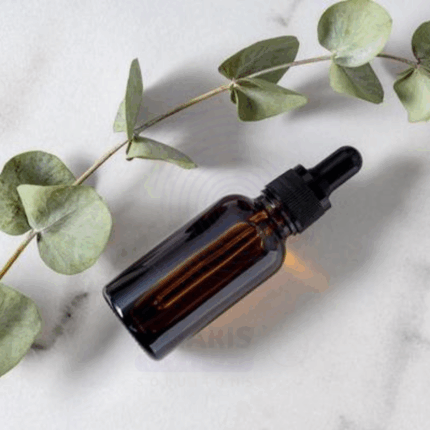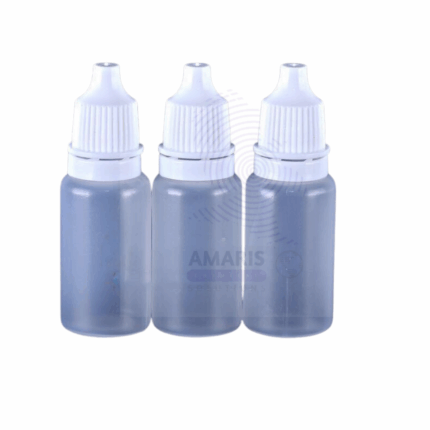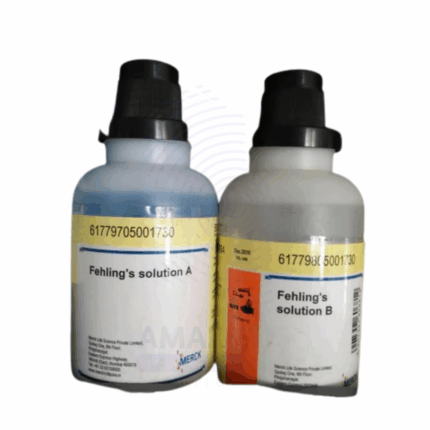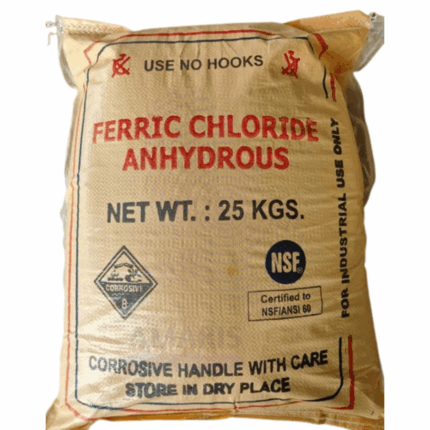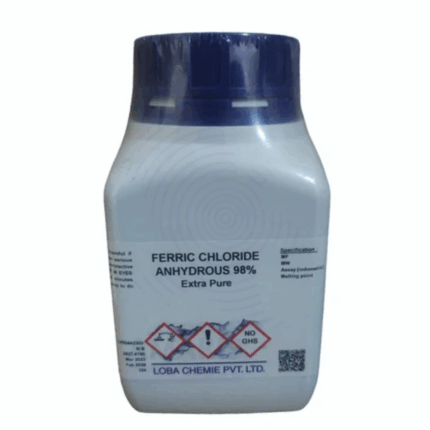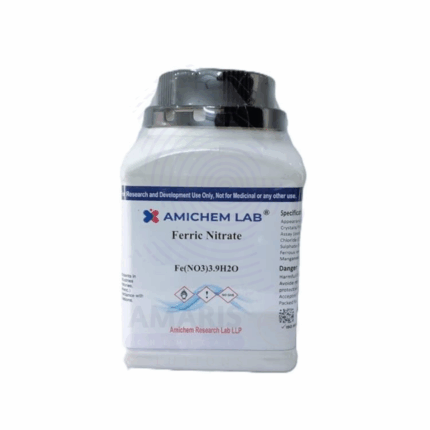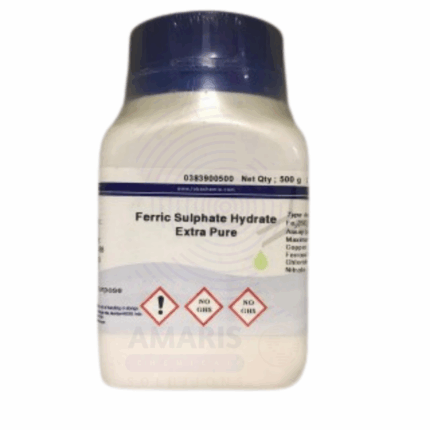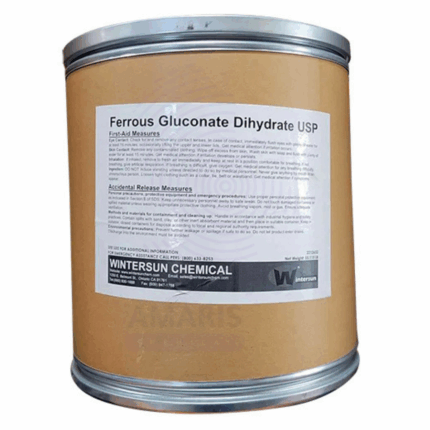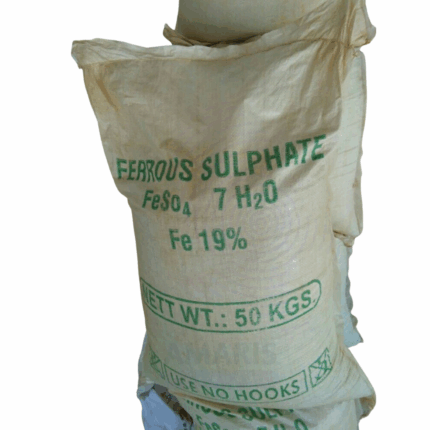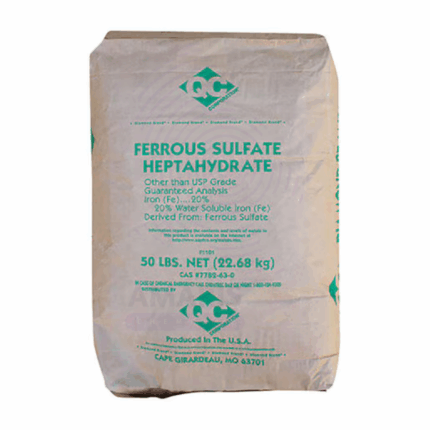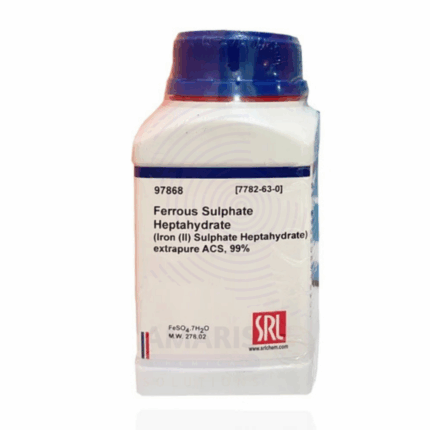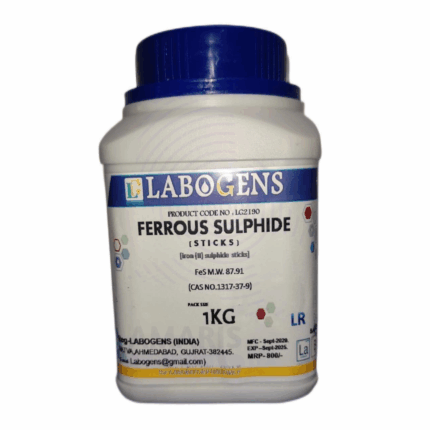
Elecampane Oil
Elecampane Oil is an essential oil extracted by steam distillation from the roots of Inula helenium. It has a warm, sweet, balsamic, and slightly camphoraceous aroma. Traditionally valued for its expectorant, antimicrobial, and anti-inflammatory properties, Elecampane Oil is used in respiratory therapies, digestive health products, and topical applications. It is prized in aromatherapy and herbal medicine for supporting lung and skin health.
Electric Bell
Electric Bell is a mechanical signaling device that produces a ringing sound when energized by an electric current. It typically consists of an electromagnet, an armature, a striker, and a bell or gong mounted on a sturdy base. When an electric current passes through the coil of the electromagnet, it attracts the armature, causing the striker to hit the bell and produce sound. The armature then releases due to a spring mechanism, allowing repeated strikes as long as the circuit is closed. Electric Bells are widely used in educational laboratories, industrial setups, and domestic applications for alerting, signaling, and notification purposes. The device is valued for its reliability, simple design, and ease of integration into electrical circuits. In physics education, the electric bell demonstrates fundamental electromagnetic principles such as electromagnetism, magnetic attraction, and electric circuit operation.
Electric Incubator
Electric Incubator is a precision-controlled laboratory device designed to provide a stable and uniform environment for the incubation of biological samples, cultures, and experimental materials. It operates by maintaining a constant temperature and humidity level through electric heating elements, fans for air circulation, and advanced thermostatic controls. Commonly constructed with insulated walls, a transparent viewing window, and adjustable shelves, electric incubators are essential in microbiology, biotechnology, pharmaceutical, and agricultural laboratories. They facilitate optimal growth conditions for microorganisms, cell cultures, and eggs, enabling research, diagnostic, and production processes. The device’s reliability, accuracy, and ease of use make it indispensable for maintaining controlled incubation parameters in various scientific and industrial applications.
Electric Motor
Electric Motor is an electromechanical device that converts electrical energy into mechanical energy through the interaction of magnetic fields and current-carrying conductors. Commonly used in industrial machinery, laboratory equipment, and household appliances, electric motors come in various types such as AC, DC, synchronous, and induction motors. Constructed from components including stator, rotor, bearings, and windings, these motors provide reliable and efficient rotational motion essential for powering pumps, fans, compressors, and other mechanical systems. Electric motors are fundamental in automation, manufacturing, and scientific research due to their precision, efficiency, and adaptability to various power sources and load requirements.
Electric Motor Model
Electric Motor Model is a scaled-down or functional demonstration version of an electric motor designed primarily for educational and training purposes. It replicates the basic components and operation of standard electric motors, allowing users to study electromagnetic principles, motor function, and mechanical motion in a controlled environment. Typically constructed with visible stator coils, rotors, and power sources, these models are essential tools in classrooms, laboratories, and workshops to facilitate hands-on learning in physics, electrical engineering, and related fields.
Electrode Carbon Rod
Electrode Carbon Rod is a high-purity carbon rod designed for use as an electrode in various electrical, industrial, and laboratory applications. Manufactured from graphite or carbon composites, these rods offer excellent electrical conductivity, chemical inertness, and thermal stability. They are commonly used in electrochemical cells, arc welding, battery manufacturing, and analytical instruments. The rods are precision-made to ensure uniform size and surface quality, enabling reliable performance in harsh environments involving high temperatures and reactive substances.
Electrode Copper Plate
Electrode Copper Plate is a high-purity copper sheet designed for use as an electrode in various electrical, electrochemical, and industrial applications. Known for its excellent electrical conductivity, thermal stability, and corrosion resistance, copper plates serve as reliable electrodes in electroplating, battery manufacturing, and electrical circuitry. These plates are manufactured with precise thickness and smooth surfaces to ensure efficient current flow and optimal performance. Copper electrodes are widely used in laboratories, manufacturing plants, and industrial processes that require durable and efficient electrical conductors.
Electrode Copper Rod
Electrode Copper Rod is a high-purity copper rod used primarily as an electrode in various electrical, electrochemical, and industrial applications. Known for its superior electrical conductivity, thermal stability, and corrosion resistance, copper rods are essential components in electroplating, battery manufacturing, welding, and electrical circuitry. Manufactured to precise dimensions with smooth surfaces, these rods ensure efficient current transmission and durability under demanding conditions. They are widely utilized in laboratories, manufacturing industries, and research facilities requiring reliable conductive electrodes.
Electrode Lead Plate
Electrode Lead Plate is a high-purity lead sheet designed for use as an electrode in various electrical and electrochemical applications, including batteries and electroplating processes. Lead plates exhibit good corrosion resistance in acidic environments and offer reliable conductivity for efficient current flow. These plates are manufactured with precise thickness and smooth surfaces to ensure optimal performance in lead-acid batteries, industrial electrolysis, and laboratory experiments. Lead electrode plates are commonly used in energy storage systems, chemical manufacturing, and scientific research.
Electrode Platinum Pair
Electrode Platinum Pair consists of two high-purity platinum electrodes used in laboratory and industrial electrochemical applications. Renowned for their excellent chemical inertness, corrosion resistance, and superior electrical conductivity, platinum electrodes provide stable and reliable performance in harsh chemical environments. These electrodes are commonly employed in electrolysis, standard electrode potential measurements, and catalysis research. Typically designed as pairs, they facilitate accurate current flow and measurement in analytical and research settings, making them indispensable in pharmaceutical, environmental, and chemical laboratories.
Electrode Zinc Plate
Electrode Zinc Plate is a high-quality zinc metal sheet designed for use as an electrode in various electrochemical applications, including batteries, corrosion protection, and electroplating. Zinc plates offer good electrical conductivity and act as sacrificial anodes in cathodic protection systems to prevent corrosion of metal structures. Manufactured with uniform thickness and smooth surfaces, these plates are widely used in lead-acid batteries, galvanic cells, and industrial electrolysis. Zinc electrodes are essential components in chemical processing, environmental protection, and laboratory research.
Electrode Zinc Rod
Electrode Zinc Rod is a high-purity cylindrical zinc metal rod designed for use as an electrode in electrochemical cells, corrosion protection systems, and industrial electrolysis. Known for its excellent electrical conductivity and sacrificial anode properties, zinc rods protect metal structures from corrosion by preferentially oxidizing. These rods are widely used in laboratory experiments, galvanic cells, battery systems, and cathodic protection of pipelines and tanks. Manufactured with uniform diameter and smooth surface finish, Zinc Rods are reliable components in both research and industrial applications.
Elemi Oil
Elemi Oil is an essential oil extracted by steam distillation from the resin of the Canarium luzonicum tree. It has a fresh, lemony, spicy, and resinous aroma, valued for its calming and restorative properties. Elemi Oil is widely used in perfumery, aromatherapy, and skin care products, particularly for its reputed ability to promote skin regeneration and relieve respiratory issues.
Ellagic Acid
Ellagic Acid is a naturally occurring polyphenolic compound found in numerous fruits, nuts, and vegetables such as pomegranates, strawberries, raspberries, walnuts, and cranberries. It is a potent antioxidant known for its ability to scavenge free radicals and chelate metal ions. Due to its significant anti-inflammatory, anti-carcinogenic, and anti-viral properties, Ellagic Acid has gained extensive interest in pharmaceutical, nutraceutical, cosmetic, and food industries. It appears as a yellow to light brown crystalline powder, insoluble in water but soluble in organic solvents like ethanol and DMSO.
Emulsifier (Emulgator)
Emulsifier is a nonionic surfactant belonging to the family of Nonylphenol Ethoxylates (NPEs), specifically with an average of 9 ethylene oxide (EO) units. It is widely used as an effective emulsifying, wetting, dispersing, and solubilizing agent. NP-9 is typically a pale yellow to amber viscous liquid, soluble in water and various organic solvents. It is valued for its strong emulsifying ability to stabilize oil-in-water (O/W) and water-in-oil (W/O) emulsions, excellent detergency, and good compatibility with other surfactants and formulation ingredients. NP-9 is commonly employed in industrial, agricultural, cosmetic, pharmaceutical, and cleaning applications.
Enamelled Copper Round Winding Wire
Enamelled Copper Round Winding Wire is a high-quality copper conductor coated with a thin layer of insulating enamel. This enamel coating provides electrical insulation while maintaining excellent conductivity and mechanical flexibility. The wire is typically round in cross-section and is widely used for winding coils in electrical motors, transformers, inductors, and other electromagnetic devices. Its robust insulation and durability make it ideal for applications requiring efficient current flow and resistance to heat, moisture, and abrasion. Enamelled copper wire is essential in both industrial manufacturing and laboratory setups involving electromagnetism and electrical engineering.
Enrofloxacin Hydrochloride
Enrofloxacin Hydrochloride is a broad-spectrum fluoroquinolone antibiotic used primarily in veterinary medicine. It is the hydrochloride salt of enrofloxacin, offering enhanced solubility and bioavailability. Enrofloxacin inhibits bacterial DNA gyrase and topoisomerase IV, disrupting DNA replication in Gram-negative and Gram-positive organisms as well as some Mycoplasma species. It is available as a white to off-white crystalline powder, used in injectable, oral, and topical formulations designed for livestock, companion animals, and aquatic species.
Epikote 828 (Epoxy Resin)
Epikote 828 is a liquid bisphenol-A-based epoxy resin with a low molecular weight. It is one of the most widely used general-purpose epoxy resins in industrial applications due to its excellent mechanical, chemical, and thermal properties. Epikote 828 cures with various hardeners, especially amines, to form thermoset polymers with outstanding adhesion, chemical resistance, and dimensional stability. The resin is typically a clear to pale yellow viscous liquid and is soluble in most organic solvents. It is primarily used in coatings, adhesives, composites, electrical encapsulation, flooring systems, and structural materials.
Epsom Salts Magnesium Sulphate Extra Pure
Epsom Salts Magnesium Sulphate Extra Pure is a high-purity, crystalline compound widely used in laboratory settings as a source of magnesium ions and as a drying or stabilizing agent in various chemical reactions. It is particularly valuable in analytical chemistry, buffer preparation, and qualitative tests involving sulfate or magnesium detection. In biological and biochemical research, it is often used to prepare nutrient solutions and culture media. The extra pure grade ensures minimal contaminants, making it suitable for precision applications and sensitive experiments. It should be stored in a cool, dry place to maintain its crystalline structure and prevent moisture absorption.
Equilateral Prism Glass
Equilateral Prism Glass is an optical glass component shaped as a triangular prism with all three sides of equal length. It is used to refract, disperse, or reflect light beams in precise laboratory, educational, and industrial optics applications. Made from high-quality, optically clear glass, the prism offers excellent light transmission and minimal distortion. It is widely used in physics experiments, spectroscopy, and optical instrument calibration. The equilateral prism’s geometry allows it to bend light rays at specific angles, enabling the study of light properties such as dispersion and refraction.
Eriochrome Extra Pure
Eriochrome Extra Pure—typically referring to Eriochrome Black T—is a complexometric indicator primarily used in EDTA titrations to detect metal ions, especially calcium (Ca²⁺) and magnesium (Mg²⁺) in water hardness analysis. In its extra pure grade, this dye ensures sharp, precise endpoint detection by minimizing impurities that could cause background coloration or interferences in spectrophotometric or volumetric determinations. It functions by forming a wine-red complex with metal ions, which turns blue when the metal is sequestered by EDTA. Suitable for high-precision analytical chemistry, it should be stored away from light and moisture to preserve stability.
Erythrosine
Erythrosine is a high-purity red synthetic dye classified as a tetraiodofluorescein salt, commonly used as a colorant in food, cosmetics, pharmaceuticals, and industrial applications. It is a water-soluble, dark red to reddish-brown powder with excellent tinting strength and brightness. Erythrosine is valued for its vivid red color, good stability under normal conditions, and compatibility with a variety of formulation systems. It is widely used to impart red hues in candies, beverages, cosmetics, and diagnostic reagents.
Ethanol Extra pure
Ethanol Extra pure Extra Pure is a highly purified grade of ethyl alcohol widely used in laboratory, pharmaceutical, cosmetic, and analytical applications. At 99.8% purity, it contains minimal water, making it ideal for dehydration reactions, chromatography, spectroscopy, and cleanroom procedures. It serves as a universal solvent, disinfectant, and intermediate in chemical synthesis. This extra pure grade ensures low impurity levels, making it suitable for precision scientific experiments and pharmaceutical formulations. It is volatile and flammable, so it should be stored tightly sealed, in a cool, well-ventilated area, away from ignition sources.
Ethoxy Propanol
Ethoxy Propanol, also known as Propylene Glycol Monoethyl Ether (PnP), is a clear, colorless, low-viscosity solvent with a mild ether-like odor. It belongs to the family of glycol ethers and is miscible with water and most organic solvents. Ethoxy Propanol is widely valued for its excellent solvency, moderate evaporation rate, and compatibility with both polar and non-polar systems. It is extensively used in coatings, inks, cleaners, and chemical synthesis applications due to its balance of performance and safety.
Ethyl Acetate
Ethyl Acetate is a clear, colorless, volatile organic solvent with a characteristic sweet, fruity odor reminiscent of pear drops. It is an ester formed by the condensation of ethanol and acetic acid. Known for its excellent solvency, low toxicity, and rapid evaporation rate, Ethyl Acetate is widely used as a solvent in coatings, adhesives, inks, pharmaceuticals, and chemical synthesis. It is miscible with most organic solvents and partially soluble in water. Ethyl Acetate offers high volatility, making it ideal for quick-drying formulations.
Ethyl Acetate Extra Pure
Ethyl Acetate Extra Pure is a high-purity solvent widely used in analytical laboratories, chromatography, and sample preparation due to its fast evaporation and low toxicity. In laboratory settings, it’s valued for extraction, purification, and reaction medium roles, especially in organic synthesis. Its low water content and consistent purity make it suitable for GC/HPLC applications, adhesive formulations, and residue analysis. It must be handled in well-ventilated areas, away from heat or flame, and stored in tightly sealed containers to maintain its stability and prevent contamination.
Ethyl Glycol Acetate
Ethyl Glycol Acetate, also known as 2-Ethoxyethyl acetate, is a clear, colorless liquid solvent with a mild, sweet, and slightly fruity odor. It belongs to the family of glycol ethers and esters, combining excellent solvency power with moderate evaporation rates. This makes it highly suitable for use in coatings, inks, adhesives, and cleaning formulations where good solvency and controlled drying times are desired. Ethyl Glycol Acetate is compatible with a wide range of resins, including nitrocellulose, alkyd, acrylic, and vinyl resins, making it a versatile industrial solvent. Its balanced physical properties allow for efficient thinning, cleaning, and dissolution without rapid evaporation or harsh odors.
Ethylene Glycol Monoethyl Ether
Ethylene Glycol Monoethyl Ether, also known as 2-Ethoxyethanol or Ethyl Cellosolve, is a clear, colorless, and hygroscopic liquid with moderate volatility and excellent solvency. It belongs to the glycol ether family and is widely used as a solvent and coalescing agent due to its ability to dissolve both polar and non-polar compounds. It is miscible with water and many organic solvents and has a moderate boiling point (~135°C). It finds extensive applications across coatings, inks, adhesives, cleaners, and chemical synthesis industries.
Ethylvanilin
Ethylvanilin (3-Ethoxy-4-hydroxybenzaldehyde) is a synthetic aromatic aldehyde widely used as a flavoring agent and fragrance ingredient. It is a white to pale yellow crystalline powder with a strong, sweet vanilla-like odor, but more intense than natural vanillin. Ethylvanillin offers excellent flavor stability, solubility in alcohol and oils, and is valued for its enhanced vanilla aroma in food, beverage, cosmetics, and pharmaceutical formulations. Due to its potent scent and flavor profile, it is a preferred substitute or complement to natural vanilla extract.
Ethylvanillin
Ethylvanillin (3-Ethoxy-4-hydroxybenzaldehyde) is a synthetic aromatic aldehyde widely used as a flavoring agent and fragrance ingredient. It is a white to pale yellow crystalline powder with a strong, sweet vanilla-like odor, but more intense than natural vanillin. Ethylvanillin offers excellent flavor stability, solubility in alcohol and oils, and is valued for its enhanced vanilla aroma in food, beverage, cosmetics, and pharmaceutical formulations. Due to its potent scent and flavor profile, it is a preferred substitute or complement to natural vanilla extract.
Eucalyptus Globulus Oil
Eucalyptus Globulus Oil is an essential oil obtained by steam distillation of the fresh leaves and young branches of the Eucalyptus globulus tree. It is characterized by a fresh, camphoraceous, and slightly medicinal aroma with a clear, pale yellow to greenish color. This oil is renowned for its antiseptic, decongestant, and anti-inflammatory properties, making it widely used in medicinal, cosmetic, and cleaning products.
Traditionally used for respiratory relief, muscle pain, and skin conditions, eucalyptus oil has also become popular in aromatherapy, personal care, and household applications. Its refreshing scent and therapeutic effects make it a valuable ingredient across pharmaceutical, cosmetic, and cleaning industries.
Eucalyptus Oil
Eucalyptus Oil is an essential oil extracted by steam distillation from the leaves of the Eucalyptus globulus tree. Known for its fresh, camphoraceous, and invigorating aroma, this oil is rich in cineole (eucalyptol), which imparts powerful antiseptic, decongestant, and anti-inflammatory properties. Widely used in pharmaceuticals, personal care, and cleaning products, eucalyptus oil supports respiratory health, acts as a natural insect repellent, and serves as a refreshing fragrance ingredient in aromatherapy and household applications. Its antimicrobial activity makes it valuable in topical formulations and natural disinfectants.
Evaporation Dish
Evaporation Dish is a shallow laboratory container typically made from chemically resistant materials such as porcelain, borosilicate glass, or metal. It is designed to hold liquids for evaporation processes where solvents are removed by heating, leaving behind solid residues or concentrated solutions. The dish provides a wide surface area to facilitate rapid evaporation and is widely used in chemical, pharmaceutical, and educational laboratories. Its durable construction allows it to withstand thermal stress and chemical exposure during repetitive heating and cooling cycles.
Expansion of Liquid Apparatus
Expansion of Liquid Apparatus is a laboratory device designed to measure the volumetric expansion of liquids when subjected to temperature changes. It consists of a graduated glass tube connected to a bulb containing the test liquid. As the liquid heats and expands, the change in volume is observed and recorded through the graduated scale. This apparatus is essential in physical chemistry and materials science for studying thermal expansion coefficients and understanding liquid behavior under varying thermal conditions. It is commonly made from chemically resistant borosilicate glass to withstand thermal stress and chemical exposure.
Eyedrop Dropper Bottle
Eyedrop Dropper Bottle is a small, precision container designed for dispensing liquids in controlled, small volumes, commonly used for medicinal eye drops, laboratory reagents, or cosmetic liquids. These bottles are usually made from chemically resistant plastic or glass and come equipped with a dropper cap or teat for accurate drop-by-drop delivery. The secure closure prevents contamination and leakage, making them ideal for medical, pharmaceutical, and laboratory applications. Their design ensures hygiene, ease of handling, and precise dosage control.
Fatty Acid
Fatty acids are a group of carboxylic acids consisting of long aliphatic chains, which can be either saturated or unsaturated. They are typically derived from natural fats and oils through hydrolysis or saponification and appear as colorless to pale yellow liquids or solids depending on the chain length and degree of saturation. Fatty acids are fundamental building blocks in biochemistry and industrial chemistry, serving as raw materials in the manufacture of soaps, detergents, lubricants, cosmetics, plastics, and food additives. Their amphiphilic nature—containing both hydrophilic (carboxyl group) and hydrophobic (alkyl chain) components—makes them versatile for various chemical and industrial applications.
Fehling Solution 1 and 2 Extra Pure
Fehling Solution 1 and 2 Extra Pure are essential reagents in classical laboratory chemistry, particularly used for the qualitative detection of reducing sugars such as glucose.
- Fehling Solution 1 contains copper(II) sulfate, while
- Fehling Solution 2 contains an alkaline potassium sodium tartrate (Rochelle salt) solution.
Ferric Ammonium Citrate
Ferric Ammonium Citrate is a dark green to black crystalline or granular inorganic compound composed of iron, ammonium ions, and citrate ions. It is a complex salt of citric acid with ferric iron (Fe³⁺) and ammonium. This compound is highly soluble in water, forming a greenish solution, and is widely utilized as a source of iron in various chemical, pharmaceutical, photographic, and food applications. It acts as a mild oxidizing agent and an iron supplement, valued for its bioavailability and ease of incorporation into formulations. Ferric Ammonium Citrate is typically available in different formulations distinguished by their water and ammonium content, such as green and brown types.
Ferric Chloride Anhydrous
Ferric Chloride Anhydrous (FeCl₃) is a dark brown to black crystalline solid with a metallic luster. It is a highly corrosive, hygroscopic inorganic salt widely used as a chemical reagent, catalyst, and coagulant. In its anhydrous form, ferric chloride is free of water and has a high purity of approximately 98%. It readily dissolves in water, releasing heat and producing acidic solutions. Ferric chloride is valued for its strong Lewis acid properties, making it effective in a variety of industrial, laboratory, and environmental applications. It is commonly supplied as a solid crystalline powder or lumps and should be handled with care due to its corrosive nature.
Ferric Chloride Anhydrous Extra Pure
Ferric Chloride Anhydrous Extra Pure is a highly refined, moisture-free compound composed of iron and chlorine (FeCl₃). In laboratory settings, it is widely used as a reagent for detecting phenols and as an etching agent for metals, especially in printed circuit board (PCB) production. Its strong oxidizing properties also make it suitable for redox reactions, qualitative analysis, and inorganic synthesis. This extra pure grade ensures minimal impurities, making it ideal for precise and controlled chemical experiments.
Ferric Nitrate Extra Pure
Ferric Nitrate Extra Pure is a high-purity iron(III) salt (Fe(NO₃)₃) commonly used in analytical chemistry, inorganic synthesis, and qualitative analysis. In the lab, it serves as an oxidizing agent and a source of ferric ions in solution. It’s also employed in the preparation of coordination compounds, as a catalyst, and in various colorimetric tests. Its extra pure grade ensures low levels of contaminants, making it suitable for precision laboratory applications.
Ferric Sulphate Extra Pure
Ferric Sulphate Extra Pure is a high-grade iron(III) sulfate compound (Fe₂(SO₄)₃) widely used in laboratory settings for analytical and research purposes. It functions as an oxidizing agent and is employed in water analysis, pigment preparation, and chemical synthesis. Its high purity makes it ideal for experiments requiring minimal interference from impurities.
Ferrous Gluconate
Ferrous Gluconate is an iron salt of gluconic acid, appearing as a pale greenish-blue or green crystalline powder or granules. It is widely used as a nutritional iron supplement and food additive due to its good bioavailability and relatively low toxicity compared to other iron salts. Ferrous Gluconate is water-soluble, providing a stable source of ferrous iron (Fe²⁺) that is easily absorbed in the gastrointestinal tract. This compound is commonly employed in pharmaceuticals, food fortification, and medical formulations to treat or prevent iron deficiency anemia. It is also used as a reducing agent and color stabilizer in various industrial applications.
Ferrous Sulphate Dried 150 Mesh
Ferrous Sulphate Dried 150 Mesh is a finely ground, dried form of ferrous sulfate (iron(II) sulfate) with a particle size passing through a 150 mesh sieve. It appears as pale green to light green crystalline granules or powder. This iron salt is widely used as a nutritional supplement, industrial chemical, and water treatment agent due to its high iron content (typically around 32-33% Fe) and enhanced solubility compared to the hydrated forms. The dried form improves stability and shelf life by reducing moisture content, making it suitable for applications in agriculture, pharmaceuticals, food fortification, and environmental treatment processes.
Ferrous Sulphate Heptahydrate
Ferrous Sulphate Heptahydrate, also known as iron(II) sulfate heptahydrate, is a pale green crystalline solid containing seven molecules of water of crystallization (FeSO₄·7H₂O). It is a widely used inorganic iron compound characterized by its high iron content (approximately 20% Fe) and good solubility in water. This hydrated salt is commonly used in agriculture, pharmaceuticals, water treatment, and various industrial processes. The heptahydrate form is preferred for many applications due to its stability, ease of handling, and cost-effectiveness.
Ferrous Sulphate heptahydrate Extra Pure
Ferrous Sulphate heptahydrate Extra Pure is a high-purity laboratory-grade chemical commonly used as a reliable source of ferrous ions (Fe²⁺) in analytical chemistry and educational experiments. With its vivid blue-green crystalline appearance, this compound plays a crucial role in redox reactions, qualitative analysis, and titration procedures. It is frequently utilized in the preparation of iron standards, as a reducing agent, and in experiments that demonstrate oxidation-reduction principles. Due to its high level of purity, it is well-suited for controlled laboratory environments where consistent and accurate results are essential. Proper storage in a cool, dry place is recommended, as the compound is prone to oxidation and moisture sensitivity.
Ferrous Sulphide
Ferrous Sulphide (FeS) is an inorganic iron-sulfur compound appearing as a dark gray to black crystalline powder or solid. It has low solubility in water but reacts with acids to release hydrogen sulfide gas. It is used in numerous industrial and chemical processes due to its sulfide content and reactive properties. Ferrous Sulphide serves as a key intermediate in metallurgy, chemical synthesis, wastewater treatment, pigment production, and more.
Ferrous Sulphide Extra Pure
Ferrous Sulphide Extra Pure is a high-purity, dark grey to black solid compound primarily used in laboratory demonstrations, especially for generating hydrogen sulphide (H₂S) gas when reacted with dilute acids. This reaction is a classic example in inorganic chemistry for studying gas evolution and the properties of sulfide compounds. Beyond educational uses, ferrous sulphide is also employed in analytical testing and in certain metallurgical and industrial processes where controlled sulfur introduction is required. Its high purity ensures minimal interference from impurities, making it ideal for precise scientific applications. The compound should be handled in a well-ventilated area and stored in tightly sealed containers to avoid moisture exposure and the release of toxic gases.


 Preservatives(food)
Preservatives(food) Flavor Enhancers
Flavor Enhancers Acidulants
Acidulants Sweeteners
Sweeteners Antioxidants
Antioxidants Colorants(food)
Colorants(food) Nutraceutical Ingredients (food)
Nutraceutical Ingredients (food) Nutrient Supplements
Nutrient Supplements Emulsifiers
Emulsifiers
 Collectors
Collectors Dust Suppressants
Dust Suppressants Explosives and Blasting Agents
Explosives and Blasting Agents Flocculants and Coagulants
Flocculants and Coagulants Frothers
Frothers Leaching Agents
Leaching Agents pH Modifiers
pH Modifiers Precious Metal Extraction Agents
Precious Metal Extraction Agents
 Antioxidants(plastic)
Antioxidants(plastic) Colorants (Pigments, Dyes)
Colorants (Pigments, Dyes) Fillers and Reinforcements
Fillers and Reinforcements Flame Retardants
Flame Retardants Monomers
Monomers Plasticizers
Plasticizers Polymerization Initiators
Polymerization Initiators Stabilizers (UV, Heat)
Stabilizers (UV, Heat)
 Antifoaming Agents
Antifoaming Agents Chelating Agents
Chelating Agents Coagulants and Flocculants
Coagulants and Flocculants Corrosion Inhibitors
Corrosion Inhibitors Disinfectants and Biocides
Disinfectants and Biocides Oxidizing Agents
Oxidizing Agents pH Adjusters
pH Adjusters Scale Inhibitors( water)
Scale Inhibitors( water)
 Antioxidants(cosmetic)
Antioxidants(cosmetic) Emollients
Emollients Fragrances and Essential Oils
Fragrances and Essential Oils Humectants
Humectants Preservatives
Preservatives Surfactants(cosmetic)
Surfactants(cosmetic) Thickeners
Thickeners UV Filters
UV Filters
 Fertilizers
Fertilizers Soil Conditioners
Soil Conditioners Plant Growth Regulators
Plant Growth Regulators Animal Feed Additives
Animal Feed Additives Biostimulants
Biostimulants Pesticides (Herbicides, Insecticides, Fungicides)
Pesticides (Herbicides, Insecticides, Fungicides)
 Active Pharmaceutical Ingredients (APIs)
Active Pharmaceutical Ingredients (APIs) Excipients
Excipients Solvents(pharmaceutical)
Solvents(pharmaceutical) Antibiotics
Antibiotics Antiseptics and Disinfectants
Antiseptics and Disinfectants Vaccine Adjuvants
Vaccine Adjuvants Nutraceutical Ingredients (pharmaceutical)
Nutraceutical Ingredients (pharmaceutical) Analgesics & Antipyretics
Analgesics & Antipyretics
 Analytical Reagents
Analytical Reagents Solvents(lab)
Solvents(lab) Chromatography Chemicals
Chromatography Chemicals Spectroscopy Reagents
Spectroscopy Reagents microbiology-and-cell-culture-reagents
microbiology-and-cell-culture-reagents Molecular Biology Reagents
Molecular Biology Reagents Biochemical Reagents
Biochemical Reagents Inorganic and Organic Standards
Inorganic and Organic Standards Laboratory Safety Chemicals
Laboratory Safety Chemicals Specialty Laboratory Chemicals(Special Laboratory Equipment)
Specialty Laboratory Chemicals(Special Laboratory Equipment)
 Demulsifiers
Demulsifiers Hydraulic Fracturing Fluids
Hydraulic Fracturing Fluids Scale Inhibitors(oil)
Scale Inhibitors(oil) Surfactants(oil)
Surfactants(oil) Drilling Fluids
Drilling Fluids
 Dyes and Pigments
Dyes and Pigments Bleaching Agents
Bleaching Agents Softening Agents
Softening Agents Finishing Agents
Finishing Agents Antistatic Agents
Antistatic Agents
 Admixtures
Admixtures Waterproofing Agents
Waterproofing Agents Sealants and Adhesives
Sealants and Adhesives Curing Compounds
Curing Compounds Concrete Repair Chemicals
Concrete Repair Chemicals Anti-Corrosion Coatings
Anti-Corrosion Coatings
 Surfactants(cleaning)
Surfactants(cleaning) Builders
Builders Enzymes
Enzymes Solvents (Cleaning)
Solvents (Cleaning) Fragrances
Fragrances
 Electronic Chemicals
Electronic Chemicals Catalysts
Catalysts Lubricants
Lubricants Photographic Chemicals
Photographic Chemicals Refrigerants
Refrigerants Automotive chemicals
Automotive chemicals Pyrotechnic Chemicals
Pyrotechnic Chemicals
 Biodegradable Surfactants
Biodegradable Surfactants Bio-based Solvents
Bio-based Solvents Renewable Polymers
Renewable Polymers Carbon Capture Chemicals
Carbon Capture Chemicals Wastewater Treatment Chemicals
Wastewater Treatment Chemicals
 Pigments
Pigments Solvents(paint)
Solvents(paint) Specialty Coatings
Specialty Coatings Binders/Resins
Binders/Resins Additives
Additives Driers
Driers Anti-Corrosion Agents
Anti-Corrosion Agents Functional Coatings
Functional Coatings Application-Specific Coatings
Application-Specific Coatings
 Fresh Herbs
Fresh Herbs Ground Spices
Ground Spices Whole Spices
Whole Spices Spice Blends
Spice Blends Dried Herbs
Dried Herbs
 Leavening Agents
Leavening Agents Dough Conditioners
Dough Conditioners Flour Treatments
Flour Treatments Fat Replacers
Fat Replacers Decoratives
Decoratives Preservatives(baking)
Preservatives(baking)
 Plasticizers & Softeners
Plasticizers & Softeners Reinforcing Agents
Reinforcing Agents Adhesion Promoters
Adhesion Promoters Vulcanizing Agents
Vulcanizing Agents Antidegradants
Antidegradants Blowing Agents
Blowing Agents Fillers & Extenders
Fillers & Extenders Accelerators & Retarders
Accelerators & Retarders

















